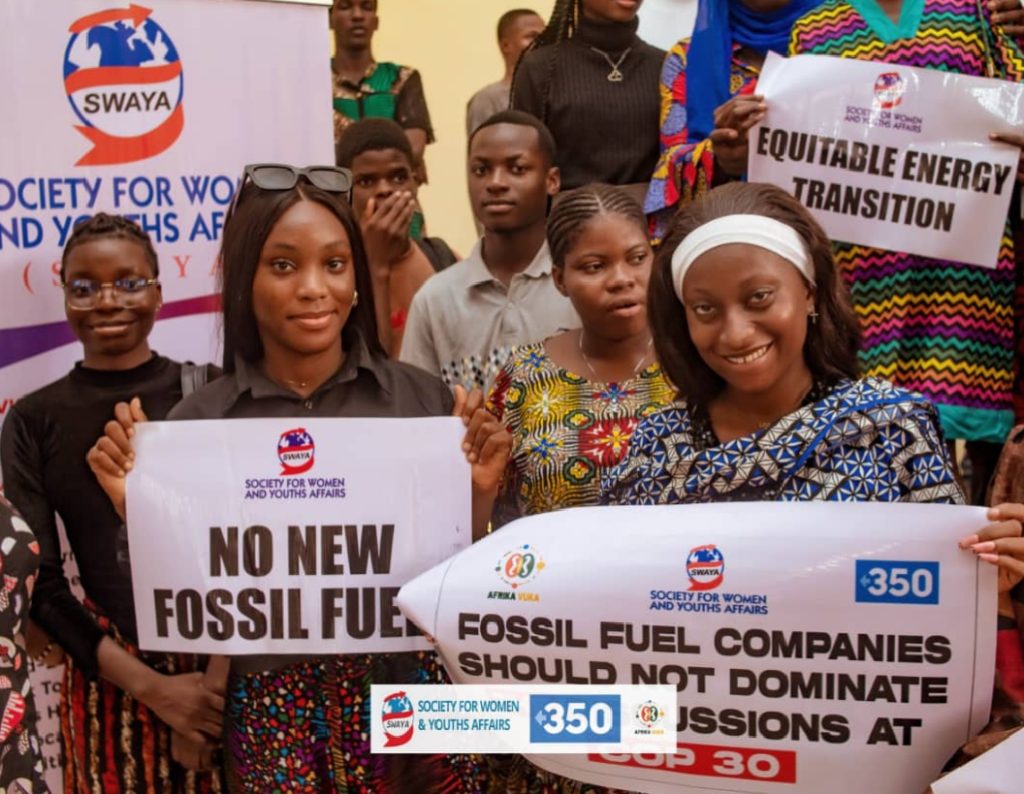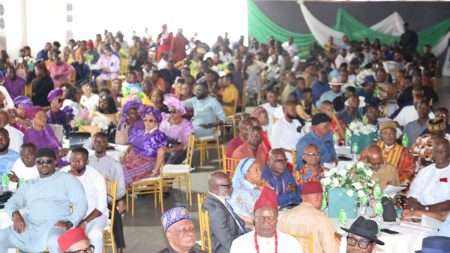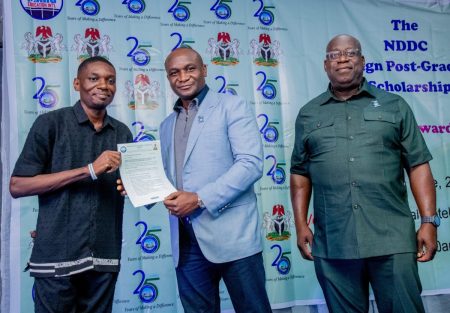
Mkpoikana Udoma
Port Harcourt — Climate justice advocates, students, and development leaders have issued a powerful call for an end to fossil fuel extraction and for reparations to communities devastated by oil pollution, particularly in Nigeria’s Niger Delta.
This was the resounding message at the Africa Vuka Day 2025 event held at Rivers State University in Port Harcourt.
The event, organised by the Society for Women and Youth Affairs, SWAYA and funded by 350.org and the Afrika Vuka Network, brought together intergenerational voices to demand justice for Africa and people of African descent through reparations and a transition to clean energy.
With the theme “Justice for Africa and the People of African Descent through Reparation”, the gathering spotlighted the urgency of ending fossil fuel dependency and the historical injustices borne by oil-bearing communities.
“Africa is so rich in mineral and solar resources, yet 600 million people live without electricity. Why are we still relying on fossil fuels?” asked Dr. Mike Terungwa, Executive Director of the Global Initiative for Food Security and Ecosystem Preservation, GIFSEP.
“We are saying no to fossil fuel exploration. Africa needs to be REpowered through renewable energy. Energy access is a fundamental human right,” he added.
Terungwa emphasized that the solution must not come in the form of tokenistic government gestures or handouts to political elites.
“There is a need for apology and financial compensation, not to the political class, but to the ordinary people of the Niger Delta, who have been rendered poor and hopeless by decades of oil exploration by international oil companies.”
Echoing this call for justice, Chief Constance Meju of the West African Network for Peacebuilding, WANEP, delivered a fiery charge to the students.
“Enough is enough! Africa is not a field for extraction, humans live here. We have a right to energy access, good health, and a clean environment. Imagine 600 million Africans without electricity, doesn’t that make you sad?
“We must demand apologies and reparations from those who have profited at the expense of our health and land. Young people must raise their voices,” Meju said.
Mrs. Stella Amanie, the Executive Director of SWAYA and host of the event, lamented the devastation oil pollution continues to wreak in communities in the Niger Delta, particularly in Ogoni.
She urged students to see themselves as leaders in the energy justice movement.
“Africa Vuka translates to ‘Awake Africa.’ It’s a movement to end the fossil fuel era and transition to clean, renewable energy. The goal is to ensure justice, equity, food sovereignty, and a sustainable future for Africa.
“We are all leaders seated here. Africa Vuka encourages bold action to build a future free from the destructive impacts of climate change,” Amanie added.
In a session titled “Nigeria’s Energy Transition Plan: An Overview”, Dr. Amaechi Kelechi Justice, Executive Director of the Community Conciliation and Development Initiative, CCADI, presented a critical appraisal of Nigeria’s roadmap to carbon neutrality.
“The Energy Transition Plan, ETP, introduced in 2022, sets a 2060 net-zero emission target. But the reality is, Nigeria may not meet this goal without significant political will and stakeholder engagement,” he said.
Justice noted that Africa contributes just 2.7% to global emissions, yet bears the brunt of climate impacts.
“Nigeria is among the top 20 most polluted countries globally, yet our emissions are negligible. The real challenge is aligning industrialization with climate goals.”
He outlined several recommendations, including, “Transparent engagement with Niger Delta communities. Attracting private investments through better tax and business policies. Updating educational curricula to train professionals for the green economy, and Strong legislation targeting high-emission industries.”
The Africa Vuka Day 2025 event concluded with a shared resolution to REpower Africa, REpower Nigeria, and REpower communities through climate justice, grassroots advocacy, and clean energy solutions.
Speakers and participants called for local and international action to dismantle fossil fuel dependency and support sustainable development in a manner that centers the rights and needs of frontline communities.
“We are not powerless. We are the generation that will Awaken Africa and demand justice, equity, and climate action. The time is now, ”Amanie said.



